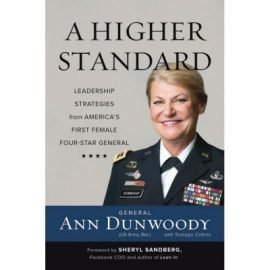Description
Making the Unipolar Moment
In the late 1970s, the United States often seemed to be a superpower in decline. Battered by crises and setbacks around the globe, its post–World War II international leadership appeared to be draining steadily away.
Yet just over a decade later, by the early 1990s, America’s global primacy had been reasserted in dramatic fashion.
The Cold War had ended with Washington and its allies triumphant; democracy and free markets were spreading like never before.
The United States was now enjoying its “unipolar moment”—an era in which Washington faced no near-term rivals for global power and influence, and one in which the defining feature of international politics was American dominance.
How did this remarkable turnaround occur, and what role did U.S. foreign policy play in causing it? In this important book, Hal Brands uses recently declassified archival materials to tell the story of American resurgence.
Brands weaves together the key threads of global change and U.S. policy from the late 1970s through the early 1990s, examining the Cold War struggle with Moscow, the rise of a more integrated and globalized world economy, the rapid advance of human rights and democracy, and the emergence of new global challenges like Islamic extremism and international terrorism.
Brands reveals how deep structural changes in the international system interacted with strategies pursued by Jimmy Carter, Ronald Reagan, and George H. W. Bush to usher in an era of reinvigorated and in many ways unprecedented American primacy. Making the Unipolar Moment provides an indispensable account of how the post–Cold War order that we still inhabit came to be.
Press Reviews
“Hal Brands has catapulted into the foremost ranks of a new generation of U.S. strategic thinkers.” —Walter Russell Mead, Foreign Affairs
Experts
“Making the Unipolar Moment is outstanding. Hal Brands demonstrates that large structural forces reshaped the international environment in a direction beneficial to the interests of the United States, even during the seeming nadir of the late 1970s. He shows how U.S. strategy harnessed those structural forces and abetted them, creating the conditions for America’s unipolar moment. The themes emphasized here are highly original and rest on impressively deep and wide-ranging research
…more
“If one wants a narrative of American international behavior in the last two decades of the Cold War, Making the Unipolar Moment is the best I have seen so far. This is a very provocative, well-written, and deeply researched book that covers a transformative period in American power, 1970–1991, with an epilogue that reaches beyond 2001. Hal Brands narrates the rise of American power from perceived decline. Drawing on numerous new American archival sources from presidential
…more
“Hal Brands has written an extraordinarily important book showing how strategy and structure interacted in the international arena in the 1980s and early 1990s. Without overlooking the deficiencies in U.S. strategy and the ‘blowback’ effects of some Reagan initiatives, Brands skillfully highlights how well-conceived policies exploited basic trends like democratization and globalization to catapult the United States to unprecedented power. This book is indispensable for understanding the evolution of U.S. foreign policy during the last half century.”—Melvyn P. Leffler, author of For the Soul of Mankind
“Making the Unipolar Moment is a beautifully written and thoroughly researched account that explains the structural and strategic origins of America’s emergence as the sole superpower. In this masterpiece, Hal Brands convincingly demonstrates that the 1970s, rather than marking American decline, set the stage for the momentous changes that occurred in the years to follow.”—James Goldgeier, coauthor of America Between the Wars
“Hal Brands now stands as one of our foremost scholars and strategic thinkers. In this strikingly original book, he combines new archival research and strategic acumen to offer a fresh and compelling interpretation of America’s unexpected transition from global declension to hegemonic unipolarity. Along the way he illumines new insights about the Reagan and Bush presidencies, and about the complex interplay between geopolitical trends, structural forces, and visionary leadership.
To read this book is to come to a new appreciation of history, strategy, and statecraft.”—William Inboden, author of Religion and American Foreign Policy, 1945–1960.
Making the Unipolar Moment
For more books, click here
 العربية
العربية  English
English 




